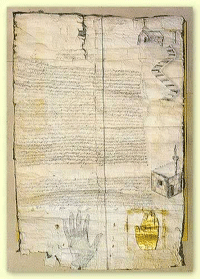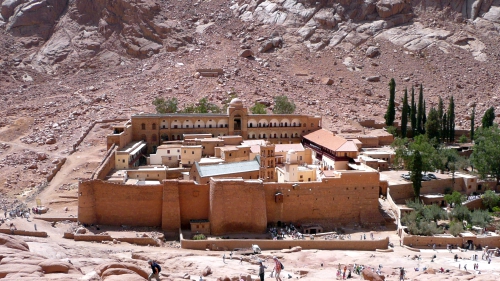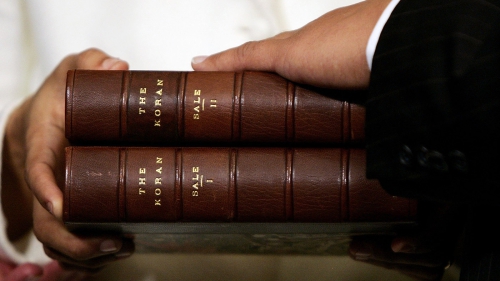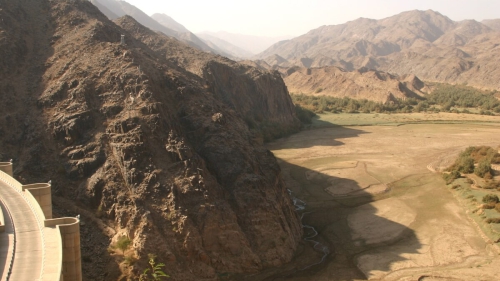Improving Muslim-Christian Relations

As the sun sets on 2010 here in the US, a car pulls up to the entrance St. Mark & St. Peter's Church in Alexandria, Egypt, and explodes.
Shards of glass skip across the charred pavement. The air hangs heavy, thickened by smoke and the unmistakable smell of burning flesh. Nearby, a man collapses against a wall, car alarms ringing in his ears. Too stunned to make sense of what has happened, he fumbles about himself, feeling for wounds, making sure organs are intact.
Before long, the place is teeming with activity as cars and ambulances dart in and out, a crowd gathers and police struggle to keep order. In the chaos that ensues, communal rioting breaks out after a group of Christians tries to burn down a mosque.
"We will protect the cross!", shouts an impassioned group of Copts. "Allahu akbar!" ("God is the greatest!") answers a band of Muslims. Twenty-one people have died.
As this news reaches me, I can only react with sadness and disbelief. Is this really happening?
Making it all the more surreal is the fact that less than 400 miles from Alexandria stands one of the most enduring testaments to Muslim-Christian harmony on earth: St. Catherine's Monastery. Nestled at the foot of Mt. Sinai, St. Catherine's holds an unparalleled collection of early Christian art and a treasure trove of ancient manuscripts. Its relics have survived unmolested for centuries, a unique distinction among Christian monuments. The monastery is known around the world for its rare assortment of Christian icons, but perhaps its most interesting artifact is a copy of a charter, written in Arabic and dating from the 7th century C.E.. This charter, now displayed behind glass for all visitors to see, was dictated by the Prophet Muhammad after he was visited in 628 by a delegation from St. Catherine's seeking protection.
 |
In no uncertain terms, the Prophet vowed that Muslims would protect not only the Christians of Sinai, but all followers of Christ both "near and far" - and their places of worship - until the end of time. Any Muslim who failed to uphold this agreement, according to Muhammad, would "spoil God's covenant and disobey His Prophet." The full text of the charter reads:
| This is a message from Muhammad ibn Abdullah, as a covenant to those who adopt Christianity, near and far, we are with them.
Verily I, the servants, the helpers, and my followers defend them, because Christians are my citizens; and by Allah! I hold out against anything that displeases them. No compulsion is to be on them. Neither are their judges to be removed from their jobs nor their monks from their monasteries. No one is to destroy a house of their religion, to damage it, or to carry anything from it to the Muslims' houses. Should anyone take any of these, he would spoil God's covenant and disobey His Prophet. Verily, they are my allies and have my secure charter against all that they hate. No one is to force them to travel or to oblige them to fight. The Muslims are to fight for them. If a female Christian is married to a Muslim, it is not to take place without her approval. She is not to be prevented from visiting her church to pray. Their churches are to be respected. They are neither to be prevented from repairing them nor the sacredness of their covenants. No one of the nation (Muslims) is to disobey the covenant till the Last Day (end of the world). |
Muhammad's charter was no anomaly. The Qur'an, while acknowledging significant theological differences between Islam and Christianity, describes a special relationship between Muslims and Christians:
| [T]hou wilt surely find that, of all people, they who say, "Behold, we are Christians," come closest to feeling affection for those who believe [in this divine writ]: this is so because there are priests and monks among them, and because these are not given to arrogance. (5:82) |
Experience bore witness to this affection. In 615, when the Muslim community was still a weak and persecuted minority, a small group of believers set out for Abyssinia, where the Prophet told them they would find just treatment and a respite from the cruelty of Mecca. Soon after they reached Abyssinia, ambassadors from Mecca's pagan elite arrived, demanding their return.
For the Qur'aish - Mecca's strongest tribe and Islam's fiercest enemies at the time - having Meccan citizens seek asylum in another land was an embarrassing foreign relations blunder. Lavish gifts were offered to the Abyssinian king in exchange for his Muslim guests, but he resolved to hear them out before deciding their fate. Questioned about what Muhammad said of Christ, the Prophet's cousin Ja'far bin Abu Talib recited a passage from the Qur'an describing the miraculous birth of Jesus. Upon hearing those sacred words, the king was so moved that he returned all the gifts to the Qur'aish, vowing not to hand over the Muslims, even for "a mountain of gold".
|
|
Just as Muslims were shown mercy and respect as guests in a Christian land, they are expected to do the same for minorities in their own society. Ten years after Muhammad and his followers had emigrated to Medina, they hosted a group of Christian scholars from Najran (southern Arabia). These men had come to Medina to settle a theological dispute with Muhammad over the divinity of Jesus. An extended debate took place over several days, with neither side giving in to the other. Even in these tense circumstances, the Prophet allowed the Christians to perform their prayers - blasphemous by Islamic standards - in his own mosque.
Like mosques, churches are highly respected and seen as sanctuaries in Islam. The Qur'an issues a stern warning about interfering with their affairs:
| Hence, who could be more wicked than those who bar the mention of God's name from [any of] His houses of worship and strive for their ruin, [although] they have no right to enter them save in fear [of God]? For them, in this world, there is ignominy in store; and for them, in the life to come, awesome suffering. (2:114) |
The protection of churches is so important that the Qur'an actually uses it as a model for just warfare:
| Permission [to fight] is given to those against whom war is being wrongfully waged [...] For, if God had not enabled people to defend themselves against one another, [all] monasteries and churches and synagogues and mosques - in [all of] which Gods name is abundantly extolled - would surely have been destroyed [ere now]. (22:39-40) |
It boggles the mind how any Muslim - any person who kneels in prayer each day and solemnly bears witness that "there is no god but God, and Muhammad is His messenger" - could so spectacularly betray his religion while uttering "God is the greatest." It is also deplorable that so many governments in the so-called "Muslim" world place barriers between Christians and their faith in the form of blasphemy laws and restrictions on church construction.
According to Joseph Malak of the World Organization for Human Rights, the deeper problem behind Alexandria's troubled Muslim-Christian relations is the "cultural illiteracy" that pervades Egypt.
Malak is right. Alexandria's Muslims could certainly benefit from improving literacy of their own tradition. Its Christians, for their part, would do well to keep in mind that "turn the other cheek" never meant "burn the other mosque."
While news like this shocks and saddens me, I take comfort in knowing that better alternatives exist, both hypothetically and historically. Despite all the problems in Egypt and around the world, St. Catherine's Monastery remains a powerful symbol of what is possible when religious communities live up to their own ideals, and a reminder that for Muslims and Christians, the past may hold the key to a brighter future.
Source: Muslimerican - Peter Gray. Mr. Gray is a college student from the Midwest who studies in the Northeast, specializing in the Far East.
Related Suggestions
Have we found the culprit(s) and reached a judgement already? President Hosni Mubarak suggested that foreigners are involved.
In Afghanistan President Karzai has said a number of times that there are 'foreign hands' involved in stoking terrorism in his country. Maliki in Iraq has said that foreign hands are provoking sectarian violence through terrorism in that country. Even President Zardari in Pakistan has said that there are foreign agents trying to destabilize his country.
This is not to make excuse for any Muslim criminals; but there seems to be a great effort afoot to bring Muslims and Christians to war across the world. Who benefits?
Organizing "suicide" bombings is quite easy.

















